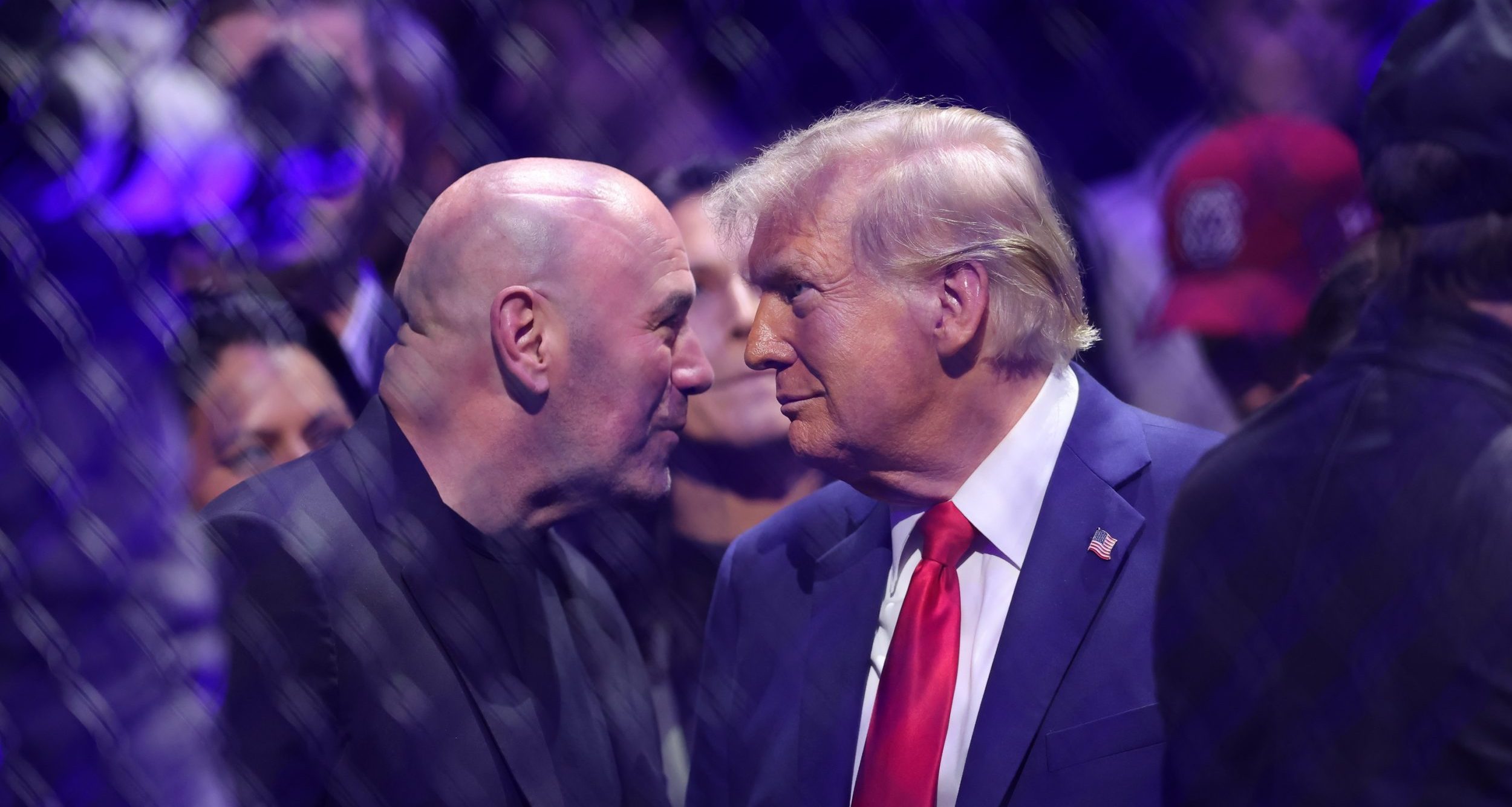Mileage may vary on whether the second election of Donald Trump this year was driven by his media outreach to everyday voters through digital sports talk shows and podcasts, but the Kamala Harris campaign certainly felt the FOMO of losing out on those appearances.
In an interview with Semafor this week, deputy Harris campaign manager Rob Flaherty explained how the campaign did not simply ignore sports shows — they were spurned by them.
Flaherty laid out a sports ecosystem that the campaign saw as increasingly intertwined with support for conservative values and Trump as a candidate — a far cry from what previous presidents like Barack Obama and even Trump faced in his first term.
“Sports and culture have sort of merged together, and as sports and culture became more publicly and sort of natively associated with this Trump-conservative set of values, it got more complicated for athletes to come out in favor of us,” Flaherty told Semafor’s Max Tani. “It got more complicated for sports personalities to take us on their shows because they didn’t want to ‘do politics.’”
While Harris appeared on All the Smoke with retired NBA athletes Matt Barnes and Stephen Jackson and Club Shay Shay with Shannon Sharpe, those interviews did not break through with any viral moments. But All the Smoke is a reasonably small program with just 1.03 million YouTube subscribers, while Sharpe has turned Club Shay Shay into more of an entertainment industry show rather than a sports show this year.
So, while some sports hosts were fine to embrace politics, Harris’s campaign saw most of them do so in the embrace of Trump.
Some athletes still broke for the Democrats, but these endorsements were too few to overcome larger cultural shifts that the campaign was feeling.
“That’s not to say Steph Curry and Steve Kerr and LeBron [James] and all them coming out wasn’t impactful or important,” Flaherty told Semafor. “It was more impactful because it had gotten so much harder. But certainly, the culture that has been associated with heavy sports-watching has become associated with right-wing culture in a way that makes it harder for us to reach people.”
In a post-election interview on the liberal Pod Save America, Harris campaign officials stated they were spurned by general talk shows like Hot Ones for similar reasons to what Flaherty laid out in the sports realm: Reliably liberal hosts wanted to stay away from politics.
Meanwhile, apolitical or conservative sports-adjacent hosts like Joe Rogan, Theo Von, and the Barstool crew more directly campaigned and supported the Republican candidate than seemingly ever before.
Whereas Obama was closely associated with sports and has even been suggested as a potential future NBA commissioner, and Trump has leveraged a relationship with the UFC and boxing through his real estate mogul past into political support among fight fans, Harris and Joe Biden came up empty.
Time will tell whether this macro-cultural shift is temporary (and more anti-Biden than pro-Trump) or can withstand the test of time. But whether you look at athletes imitating Trump in scoring celebrations or sports media largely ignoring election chatter this time around, the Harris campaign clearly foresaw how sports would embrace Trump 2.0 far more than Trump 1.0.
That puts America on course for a much different experience over the next four years than in 2017, when famous athletes like James, Colin Kaepernick, and Megan Rapinoe directly opposed the president.

 awfulannouncing.com
awfulannouncing.com
In an interview with Semafor this week, deputy Harris campaign manager Rob Flaherty explained how the campaign did not simply ignore sports shows — they were spurned by them.
Flaherty laid out a sports ecosystem that the campaign saw as increasingly intertwined with support for conservative values and Trump as a candidate — a far cry from what previous presidents like Barack Obama and even Trump faced in his first term.
“Sports and culture have sort of merged together, and as sports and culture became more publicly and sort of natively associated with this Trump-conservative set of values, it got more complicated for athletes to come out in favor of us,” Flaherty told Semafor’s Max Tani. “It got more complicated for sports personalities to take us on their shows because they didn’t want to ‘do politics.’”
While Harris appeared on All the Smoke with retired NBA athletes Matt Barnes and Stephen Jackson and Club Shay Shay with Shannon Sharpe, those interviews did not break through with any viral moments. But All the Smoke is a reasonably small program with just 1.03 million YouTube subscribers, while Sharpe has turned Club Shay Shay into more of an entertainment industry show rather than a sports show this year.
So, while some sports hosts were fine to embrace politics, Harris’s campaign saw most of them do so in the embrace of Trump.
Some athletes still broke for the Democrats, but these endorsements were too few to overcome larger cultural shifts that the campaign was feeling.
“That’s not to say Steph Curry and Steve Kerr and LeBron [James] and all them coming out wasn’t impactful or important,” Flaherty told Semafor. “It was more impactful because it had gotten so much harder. But certainly, the culture that has been associated with heavy sports-watching has become associated with right-wing culture in a way that makes it harder for us to reach people.”
In a post-election interview on the liberal Pod Save America, Harris campaign officials stated they were spurned by general talk shows like Hot Ones for similar reasons to what Flaherty laid out in the sports realm: Reliably liberal hosts wanted to stay away from politics.
Meanwhile, apolitical or conservative sports-adjacent hosts like Joe Rogan, Theo Von, and the Barstool crew more directly campaigned and supported the Republican candidate than seemingly ever before.
Whereas Obama was closely associated with sports and has even been suggested as a potential future NBA commissioner, and Trump has leveraged a relationship with the UFC and boxing through his real estate mogul past into political support among fight fans, Harris and Joe Biden came up empty.
Time will tell whether this macro-cultural shift is temporary (and more anti-Biden than pro-Trump) or can withstand the test of time. But whether you look at athletes imitating Trump in scoring celebrations or sports media largely ignoring election chatter this time around, the Harris campaign clearly foresaw how sports would embrace Trump 2.0 far more than Trump 1.0.
That puts America on course for a much different experience over the next four years than in 2017, when famous athletes like James, Colin Kaepernick, and Megan Rapinoe directly opposed the president.

Democratic Party aide says sports fandom 'has become associated with right-wing culture'
The Kamala Harris saw sports fandom and culture go right toward Donald Trump in 2024, leaving thin on options to connect to voters.
 awfulannouncing.com
awfulannouncing.com

